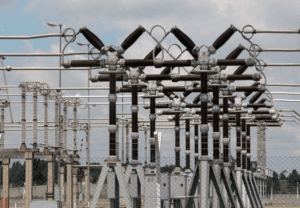

Rolling course of unremitted revenue: Dragging defaulting MDAs to clear the air
Narratives of administrative deficiencies have not ceased from the calculus of the patterns of governance character in Nigeria. The clusters of interlocking deficiencies have loudly given the character of public administration in the Country the nomenclature of corruption over time. The misgivings have borne the classification of public administration in the Country within the corridor of bad governance loudly tingling with disconcerting effects on growth and development.
Recently, the disclosure of administrative lacuna reflecting non-remittance of large sums of revenue over time has been taking toll of nauseating records. In 2021, a number of cases of records had taken course with probes set up by the National Assembly to call affected MDAs nailed in the discrepancies to give account. The joint efforts of the two chambers of the National Assembly to probe the Agencies whose records have revealed lacunas with suspicion of financial recklessness in the light of apparent skewing of proper accountability had raised concerns, particularly on revenue generating Agencies. The discoveries have led to Agencies falling under such category appearing on invitation by either of the Chambers or a joint committee formation to defend alleged cases of financial discrepancies. Records have shown how some of the representatives of the affected MDAs fumbled during summon to answer to the discrepancies.
In its 2019 Annual Report on Non-Compliance, Internal Control, and Weakness Issues in MDAs of the Federal Government of Nigeria for the year ended December 31, 2019, which was submitted to the National Assembly, the Office of the Auditor General of the Federation (OAuGF) disclosed that no less than 15 Ministries, Departments, and Agencies failed to remit N127.13bn revenue to the Consolidated Revenue Fund between 2017 and 2019.
The CRF was created by Section 80(1) of the 1999 Constitution which states that “all revenues or other sums of money raised or received by the Federation (not being revenues or other money payable under this Constitution or any Act of the National Assembly into any other public fund of the Federation established for a specific purpose) shall be paid into and form one Consolidated Revenue Fund of the Federation.” According to the audit report, the finance circular issued on November 11, 2011, with reference number BO/RVE/12235/259/VII/201 requires all agencies to limit their utilisation of Internally Generated Revenue to not more than 75 per cent of the gross revenue while the balance of not less than 25 per cent should be remitted to the CRF. In view of the requirement, the OAuGF observed that, “the sum of N127,129,212,622.58 (One hundred and twenty seven billion, one hundred and twenty nine million, two hundred and twelve thousand, six hundred and twenty two naira, fifty eight kobo) was the amount of revenues/internally generated revenues not remitted to relevant authorities by fifteen (15) Ministries, Departments, and Agencies.”
The agencies nailed in violation of the requirement include the Nigeria Customs Service headquarters, Abuja; Nigerian Institute for Oil Palm Research, Benin; Veterinary Council of Nigeria; Kwali Area Council, Abuja; Lagos University Teaching Hospital; National Orthopedic Hospital, Lagos; and the Federal Medical Centres in Keffi, Yenagoe and Ondo. Others include the Nigeria Ports Authority, Council for Legal Education, National Industrial Court of Nigeria, Nigerian Immigration Service, and the Anambra-Imo River Basin Development Authority, Owerri.
According to the report, Customs had the highest amount of N125.8bn unremitted revenue while the Anambra-Imo River Basin Development Authority, Owerri had the least amount of N5.3m. The first discrepancy, the report noted, was discovered upon examination of the NCS’s summary of monthly revenue collection in 2017 and the NCS’ collections and remittances into the federation account 2017. “The audit observed that in the report of NCS’s summary of monthly revenue collection in 2017, total collections for the federation account were N691.26bn. However, the report of NCS’s collections and remittances into the federation account in 2017 showed actual remittance into the federation account with the CBN for the year under review to be N629.23bn. A comparison of these two documents revealed an under remittance of N62.24bn,” the report stated.
In addition, the report revealed there was no footnote or any form of additional information attached to the two reports indicating the reasons for the discrepancy, neither was any form of communication of management’s intention for future reconciliation or remittance. Also, the OAuGF found discrepancies in the reported revenue figures of the service in 2017, which led to the under-remittance of N63.6bn to the federation account. The report noted that other irregularities in the remittance of the IGR to the CRF found in the records of the remaining 14 agencies were discovered between 2018 and 2019. The report maintained that on both occasions, when contacted, the NCS has failed to offer any explanation for the discrepancies found in their records.
Changing the narrative of the stench robbing on the Country is a high call of note. The resonance of huge discrepancies in the accounts of Government Ministries, Departments and Agencies (MDAs) is saddening to the ear. Continuous reports of misappropriation and mismanagement of the Federation’s commonwealth is a saddening experience which continue to bite hard on Nigerians who are passing through hard times. The reports of humongous sums which are being diverted and looted is a negative tag which is rubbing on the negative perceptions of which Nigerians are being perceived before other nations of the world.
The necessity for the Government to change the tactics of tackling corruption is urgent. Rather than relying mostly on the existing reative measures, it is significant that the drum beat be transformed to accommodate a system centered on stronger preventive structures. Such system that demands almost instant accountability in work processes should be set in place. It is essential that the Federal Executive and the National Assembly work hand-in-hand to institute processes of fair platforms for public hearings where Nigerians would be accommodated to throw questions to representatives of government MDAs with questionable accounts of misappropriation and mismanagement. At the height of controversial outcomes surrounding several misappropriated funds, making details of unaccounted funds open enough for Public consumption is very essential for questioning by intelligent Nigerian citizens.
Accountability in the Nigerian parlance of governance appears to be miniature and a subject of gross concern regarding giving integrity of reports to public revenue and expenditures. The deficiencies of structural formations of the official architectures of governance in the Country is such which have opened the framework to the manifestations of poor system of accountability patterns. It is evident that while there are some instruments which are available to identify gaps in the instance of unaccountability at certain official levels within government architectures, the chunk of leakages which these instruments are weak and unable to trace or recognise, may largely overshadow the recognised ones. The overwhelming punctures of leakages are pulling strings which for years have weakened the system of running governance with unaccounted financial leakages. The clustering of the phenomenon has largely been the ground for the expansive wings of the tentacles of corruption which has coloured the perceptional definition of the Country as one of the headquarters of corruption in the world.
Reports and ambiguity over cases of default in remittances from revenue generating Agencies of the Government to the coffers have been a subject pregnant with emphatic points of note. While this expand across all levels of government in the Federation, its stronghold at the Federal level appears more troubling, particularly with the enormity of leakages which find expression within the structures of its revenue generating Agencies. The need for all structural institutions including the National Assembly to intensify oversight measures to quiz the affected MDAs to account for the unremitted sums, remit, and forward the evidence of remittance to the appropriate quarters remains sacrosanct.




